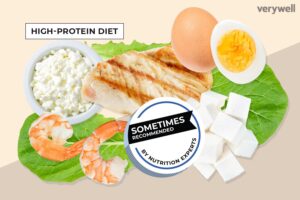Could a higher protein intake lead healthier eating , Eating a variety of nutritious food sources is essential to health and prosperity. What makes up individuals’ eating routine will impact various areas of health, including maintaining a healthy weight. Protein is a critical part of the eating routine.

A new study Trusted Source distributed in the journal Obesity Trusted Source found that increasing protein in the eating routine may be useful for individuals engaged with health improvement plans. Specifically Nick Kyrgios joins Rafael Nadal, it may impact food decisions and diminish the deficiency of lean weight.
Protein and lean weight
Proteins Trusted Source are supplements that allow the human body to work appropriately. Protein assists the body with maintaining its construction and controls capabilities in the body and its cells. Individuals can get protein from various sources, including meat, dairy, a few vegetables and grains.
One challenge for individuals who are pursuing weight reduction is maintaining lean weight while disposing of overabundance fat. Lean weight (LBM) has to do with the weight’s that isn’t made up of adipose tissue or muscle to fat ratio. Part of this amount is made up of the muscles, or the bulk.
Dr. Anastasia Kalea with the University College London Division of Medicine, who was not associated with the review, explained to Medical News Today:
“While several dietary, way of life, [behavioral], pharmacological or combination weight reduction intercessions are promising, they frequently face the challenge of loss of lean weight, which has various negative health implications. It affects one’s quality of life, [and] the ability to direct activities of daily living, has consequences for neuromuscular capability, feeling and psychological states, and it also affects the sustainability of weight reduction because it is connected to metabolic decay.”

In this review, researchers looked to examine how “the change in self-chose protein intake during caloric limitation (CR) alters diet quality and lean weight (LBM).”
The review utilized pooled data from various trials and included participants who met explicit qualification criteria. Researchers evaluated 207 adults previously and north of a half year of diets that confined calorie intake.
All participants were either overweight or corpulent. All participants went through a weight reduction mediation lasting six to a year. They all had week by week directing meetings for the initial two months and follow-up visits with an enrolled dietitian nutritionist.
Researchers evaluated both body structure via dual-energy X-ray absorptiometry and dietary intake. They also saw parts like protein sources and diet quality. Based on the intake data, they separated participants into two gatherings: lower and higher protein intake.
Concentrate on author Dr. Sue Shapses, a teacher in the Department of Nutritional Sciences at Rutgers University-New Brunswick, told MNT: “In this study plan, we split the participants in half based on how much protein they consumed during the a half year of weight decrease.”
Researchers observed that the amount of weight reduction was similar for the two gatherings. Nonetheless, among the high protein intake bunch, there was less loss of lean weight.
Participants in the high protein bunch also made more healthy food decisions, like an increased intake of green vegetables and decreasing utilization of refined grains and added sugar.
